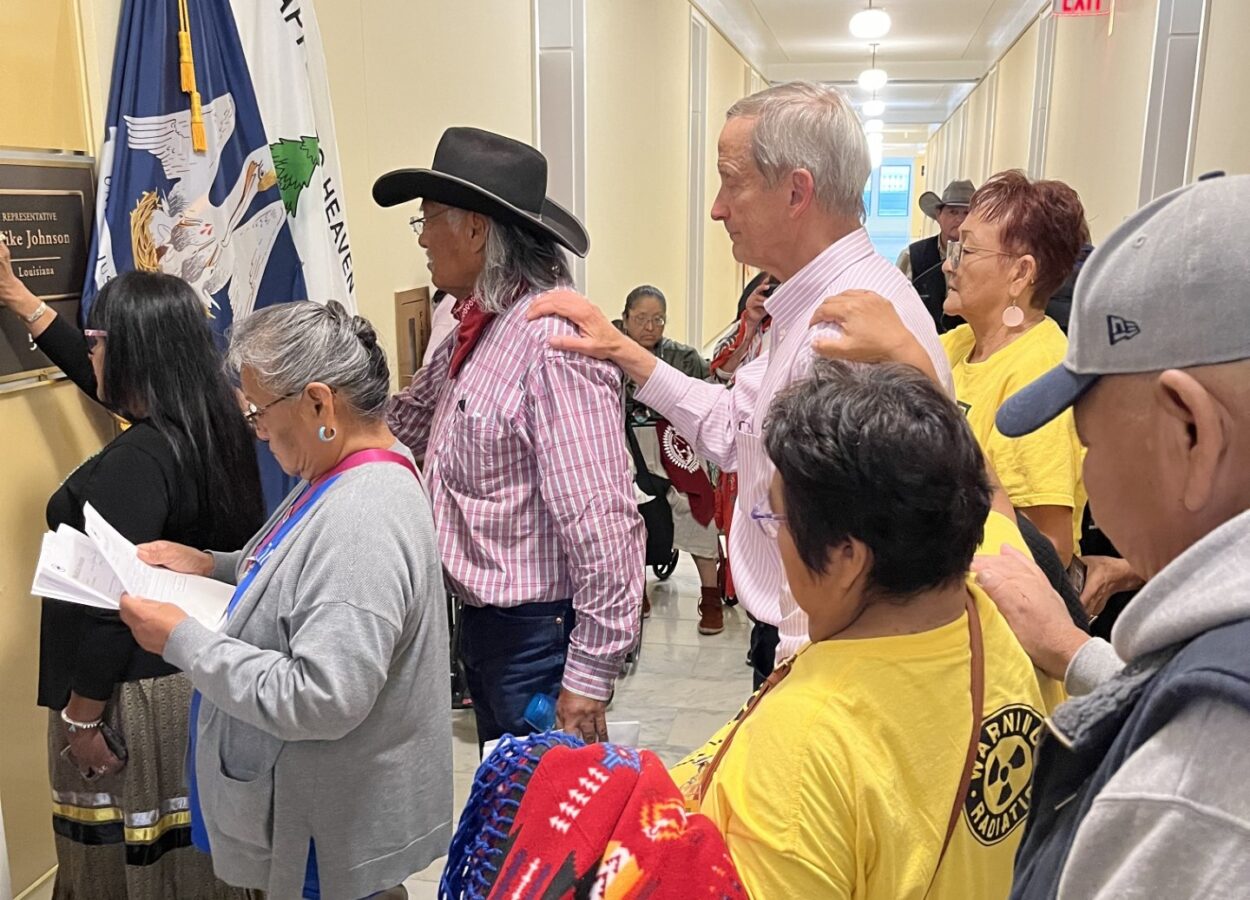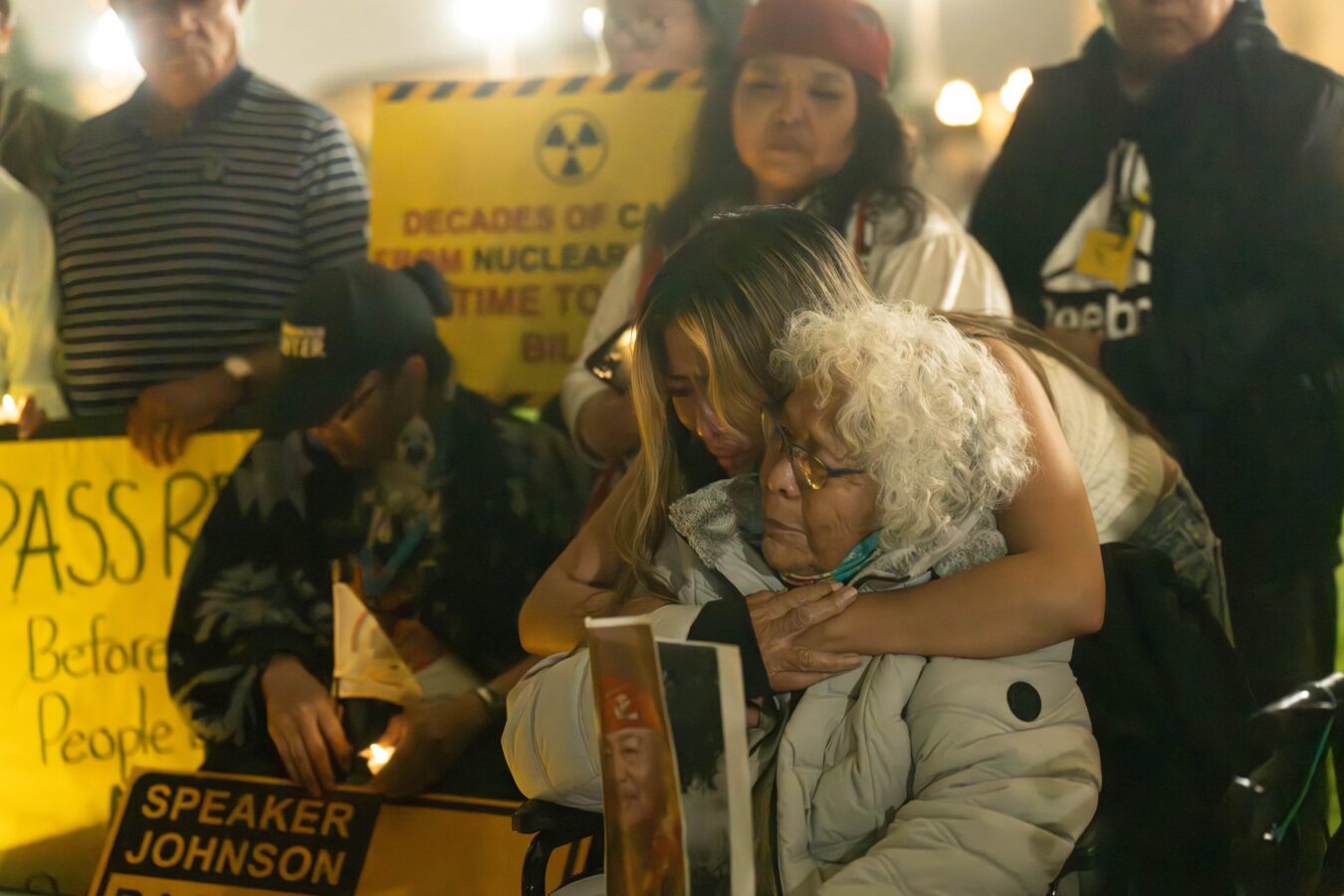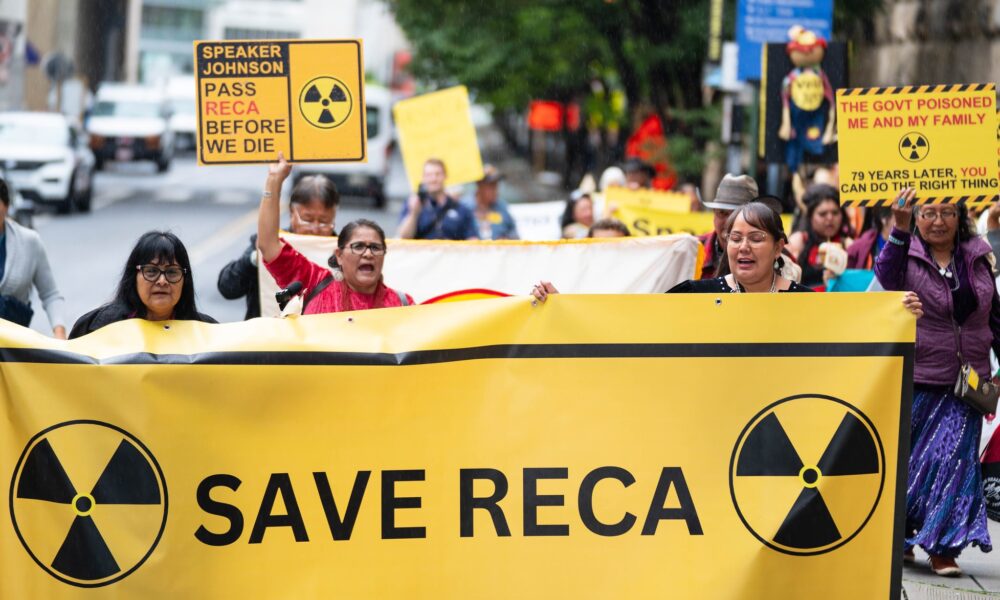For the next month, Congress is out campaigning, and our collective brain space will be mostly occupied by the upcoming election. But once the election is over, Congress will have a precious six weeks (the “lame duck” session) to do some final legislating before the 118th Session ends and all pending bills turn into pumpkins.
Next week, October 15 is the anniversary of the enactment of the Radiation Exposure Compensation Act (RECA). The creation of RECA in 1990 came after decades of activism by communities exposed to radiation from the production and testing of US nuclear weapons, and was a huge step forward in recognizing and atoning for the harms the US government caused with its nuclear activities. But this October will mark the first time in 34 years that victims of radiation exposure don’t have access to cancer screenings and a small amount of compensation provided by RECA, since House Speaker Mike Johnson allowed the program to expire in June. Until Congress acts, otherwise-eligible sick “downwinders” and uranium workers have nowhere to turn, and exposed communities that have been left out of RECA for decades are still being abandoned by their government.
This March, the Senate passed a historic bill to strengthen RECA and include previously excluded communities with a veto-proof, bipartisan supermajority. When Congress returns on November 12, that bill (S. 3853) will have been sitting, neglected, on Mike Johnson’s desk for eight months. Rather than following a democratic process and allowing the House to vote on the bill, the speaker has personally held it hostage. When asked why, he has equivocated, offering vague and disingenuous rationales for inaction while refusing to even meet with affected community members.
This is doubly strange because all signs point to significant support within his conference. There will always be some number of Republicans who refuse to spend money on any public good, but in this case, Johnson is standing in the way of a priority of his own colleagues. Dozens of House Republicans have shown their support for expanding RECA in various ways, indicating that a House vote would likely go the same way as the Senate vote in March.
Keeping up a fight that started 80 years ago
In September, nearly 50 Indigenous advocates from the Pueblos of New Mexico, the Navajo Nation, and the Hopi tribe who felt like they had hit a brick wall with Congress traveled to Washington, DC, while Congress was briefly in session. More than half of the attendees traveled 37 hours by bus each way.
Since Mike Johnson’s office denied yet another request to meet while they were there, the advocates visited his office en masse. They brought a summary of medical costs with them, showing what they’ve spent on health care and associated costs for their radiation-linked illnesses. The average was around $400,000 per person—four times the proposed compensation amount—with some individual bills nearing $1 million.

Johnson’s staff largely brushed off the group. Before leaving the building, advocates joined together to pray that Mike Johnson has the compassion and leadership to truly listen. They feel confident that if he does, he will help them.
September’s powerful visit also included a march to Capitol Hill, a press conference with RECA’s congressional champions and allies, and a candlelit prayer vigil to remember those who have passed away. Reporting before and after the event suggests that Johnson is finally discussing options for moving RECA forward.

We certainly hope this is true, since what’s become clear is that these advocates, and the members of Congress supporting them, will not give up. For some of these communities, like the downwinders from the Trinity Test in 1945, this is a fight nearly 80 years in the making, and they’ve made more progress than ever before. While this anniversary may be a disappointment, Congress and Speaker Mike Johnson still have time before the end of the year to make it right.

